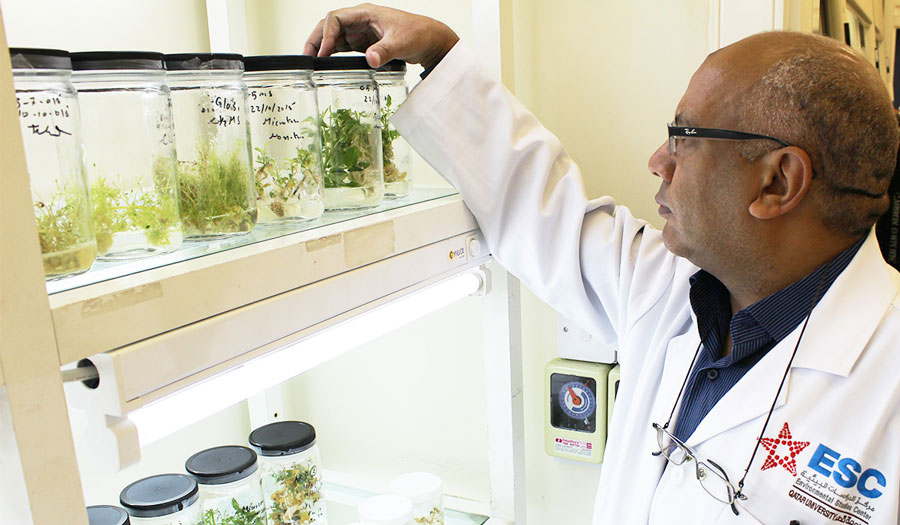
Plant Biotechnology Laboratory is established to cover different research areas in plant biotechnology including plant tissue culture, gene transformation, endemic plant biodiversity using different DNA fingerprinting techniques and plant bioactive secondary metabolites.
One of the major research in the lab is the application of tissue culture techniques for date palm in-vitro propagation. This technique has many advantages compared to traditional techniques such as seed and offshoots propagation. Common Qatari date palm cultivars like Khalas and Berhi cultivars are used to produce of genetically uniform plants as large-scale multiplication.
The lab is also working on the genetic improvement of tomato and other plants for abiotic stress such as drought and salt stress tolerance through Agrobacterium-mediated transformation.
Application of tissue culture to plant conservation has been largely used in economically important crop plants. In our lab, this technology could successfully be extended to conserve Qatari endangered plants. In addition, DNA fingerprinting techniques using different DNA markers are used to analyze genetic structure of the rare and endangered plant species to understand their biology and to identify conservation priorities for making better conservation plans (ex situ or in situ). Moreover, the lab aims to use plant in-vitro culture technique as an alternative source to whole plant cultivation to produce valuable natural bio-products.
As part of its educational role, the laboratory provides technical training in plant tissue culture, gene transformation and plant DNA fingerprinting for undergraduate and graduate students as well as other researchers inside and outside Qatar University.